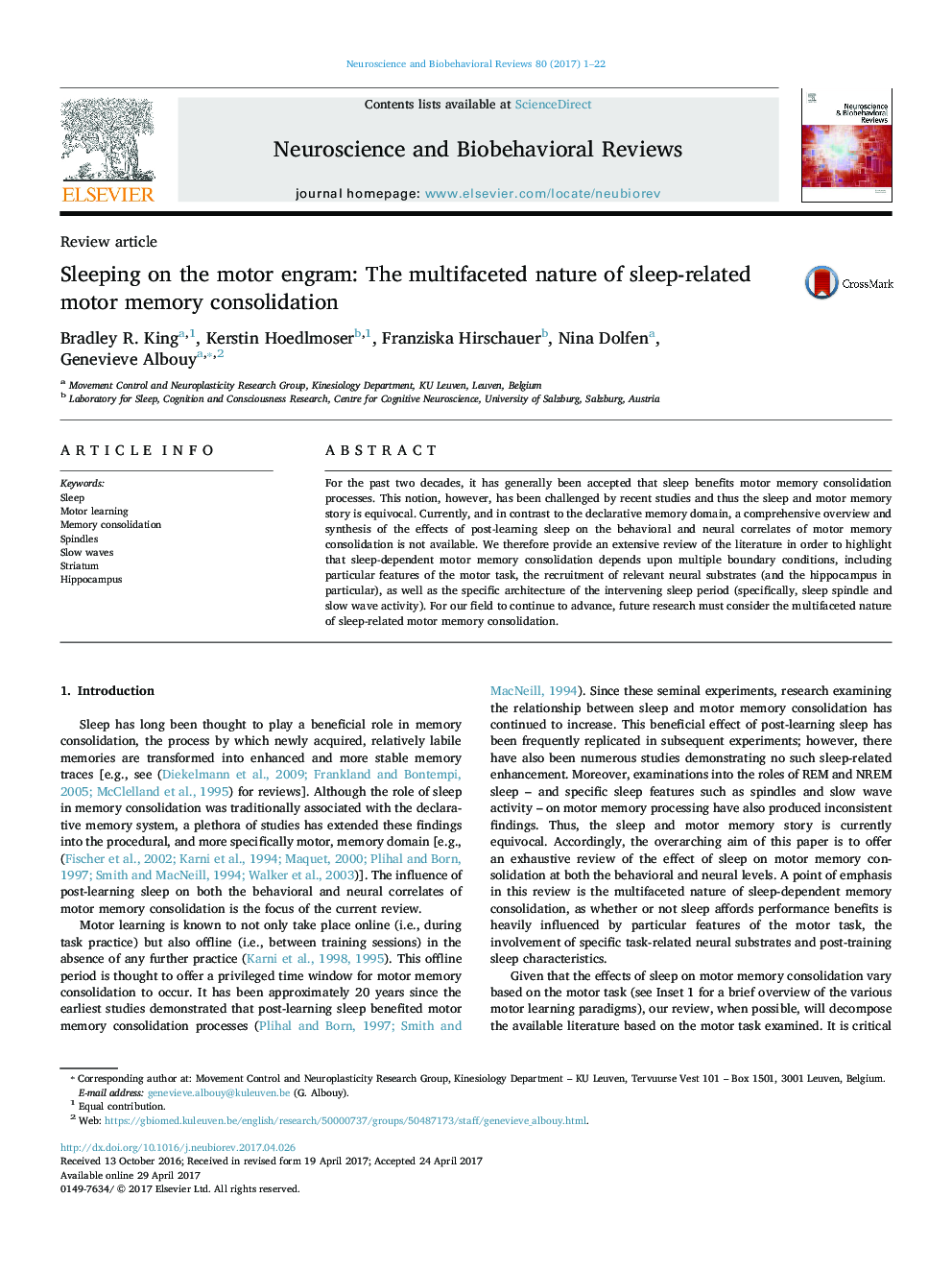| Article ID | Journal | Published Year | Pages | File Type |
|---|---|---|---|---|
| 5043430 | Neuroscience & Biobehavioral Reviews | 2017 | 22 Pages |
â¢Sleep-related motor memory consolidation depends on multiple boundary conditions.â¢Sleep consolidates explicit, abstract and complex motor sequence information.â¢Sleep consolidates hippocampal-mediated motor sequence memory traces.â¢Sleep spindles and slow waves are crucial for motor sequence memory consolidation.â¢Sleep can be manipulated to optimize motor sequence memory consolidation.
For the past two decades, it has generally been accepted that sleep benefits motor memory consolidation processes. This notion, however, has been challenged by recent studies and thus the sleep and motor memory story is equivocal. Currently, and in contrast to the declarative memory domain, a comprehensive overview and synthesis of the effects of post-learning sleep on the behavioral and neural correlates of motor memory consolidation is not available. We therefore provide an extensive review of the literature in order to highlight that sleep-dependent motor memory consolidation depends upon multiple boundary conditions, including particular features of the motor task, the recruitment of relevant neural substrates (and the hippocampus in particular), as well as the specific architecture of the intervening sleep period (specifically, sleep spindle and slow wave activity). For our field to continue to advance, future research must consider the multifaceted nature of sleep-related motor memory consolidation.
